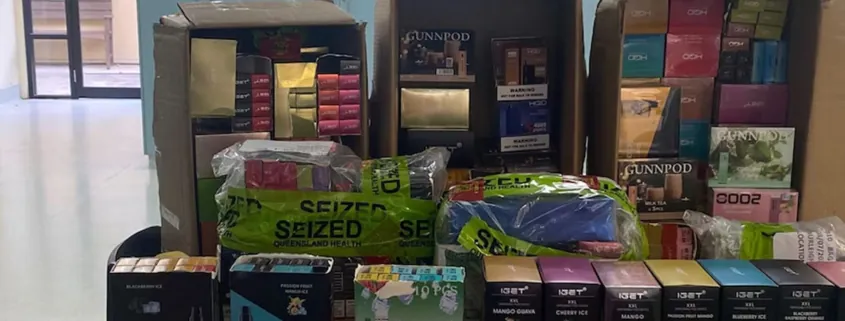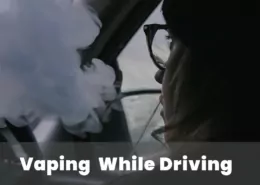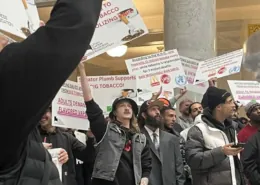Upcoming Disposable Vape Ban Boosts Black Market Fears
Industry Experts Warn Upcoming Single-Use Vape Ban May Fuel Illicit Trade
London councils have seized a staggering 530,498 illegal vapes this year, with an estimated value of over £6 million, according to data obtained through Freedom of Information (FOI) requests. In the past three years, more than two million vapes have been confiscated across the city. As the government prepares to ban single-use vapes from June 1, 2025, industry experts express concerns that the black market may grow further.
Hillingdon Council leads the confiscations, seizing 454,616 illegal vapes this year alone, accounting for more than 85% of all vapes seized by London councils. The ban, announced in October, aims to protect the environment and children’s health by reducing plastic waste and making single-use vapes less attractive and available to young people.
UK Vaping Industry Association Warns of Unintended Consequences
John Dunne, Director of the UK Vaping Industry Association (UKVIA), cautions that the ban may exacerbate the situation. “The effects are going to be very simple, it’s going to make the situation far worse than it is already. It’s going to fuel the black market more,” Dunne states.
Illegal vapes may contain more than the legal amount of 2ml of nicotine liquid, have a nicotine strength beyond the legal maximum of 20mg/ml (2%), lack proper health warnings, or have no batch code or UK producer details for traceability.
Dunne expresses concern that Trading Standards, the local authority responsible for enforcing consumer protection laws, can barely keep up with the current illicit vape and tobacco problems. He fears that without alternative solutions, the ban will strain councils trying to enforce it and lead to the growth of an unregulated black market for disposable vapes.
Councils See Dramatic Increase in Illegal Vape Seizures
Several London boroughs have witnessed a significant rise in illegal vape seizures over the past three years. Ealing Council has seen a more than 500% increase, with 8,036 vapes impounded so far this year, compared to 2,764 last year and 1,344 in 2022. Southwark Council seized just 38 illegal vapes in 2022, but this number has skyrocketed to 5,242 in the current year.
The UKVIA proposes introducing licenses to restrict vape sales to retailers that sell cigarette products and specialty vape stores capable of providing education and support regarding the products. Currently, no license is required to sell vapes, resulting in their availability in unconventional locations such as hairdressers, take-away restaurants, and taxi ranks.
Risks of Illegal Vapes and Challenges for Trading Standards
Illegal vapes pose significant risks, as they can be untested, unregulated, and contain dangerous levels of metals such as nickel, lead, and chromium. Trading Standards officers carry out inspections across London, often in response to complaints or tip-offs about unlicensed vendors. However, limited funding and resources hinder their ability to effectively tackle the growing problem.
David Hunt, Chartered Trading Standards Institute lead officer for vaping and senior Trading Standards officer at the London Borough of Hackney, highlights the issue of disposing of seized vapes, as battery recycling and disposal are expensive. He calls for government action to cover these costs to enable Trading Standards to fulfill their duties.
Economic Impact and Environmental Concerns
The Association of Convenience Stores (ACS) suggests that the disposable vape ban may drive more customers to the black market, costing legitimate UK businesses £645 million in lost sales and millions more in associated footfall loss.
Environmental concerns also play a role in the ban, with the non-profit recycling organization Materials Focus estimating that almost five million single-use vapes were littered or thrown away every week in the UK in 2022. This amounts to over 40 tonnes of lithium discarded, equivalent to the amount used to power 5,000 electric vehicles.
As vape usage in the UK has grown by more than 400% between 2012 and 2023, it is hoped that reusable, refillable vapes will replace single-use vapes, reducing plastic waste and battery disposal issues. However, the challenges faced by Trading Standards and the potential unintended consequences of the ban remain a concern for industry experts and councils alike.
- Fumot Mate Pod Kit Review: 10,000 Puffs & TPD Legal? - August 10, 2025
- UK Vape Tax Could Push E-Liquid Prices to £40 a Bottle - August 10, 2025
- Minnesota: Northfield Postpones Vote on Flavored Vape Ban - August 10, 2025







